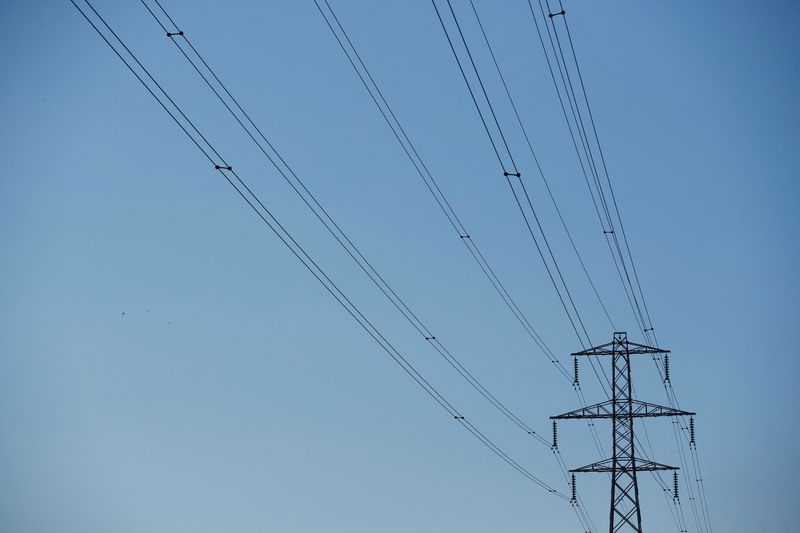By Susanna Twidale
(Reuters) -Most British household energy bills will fall from April after regulator Ofgem cut its domestic price cap to its lowest in more than two years.
The drop, prompted by lower wholesale energy prices, will provide some respite for households struggling with a cost of living crisis, while also helping to curb inflation.
Ofgem's new cap of 1,690 pounds ($2,139) a year for average use of electricity and gas is down 238 pounds, or 12.3%, from the previous cap of 1,928 pounds.
"This will see energy prices reach their lowest level since Russia’s invasion of Ukraine in February 2022," Ofgem said.
Ofgem said that while the drop was good news for consumers there were still challenges in the energy market, with a record 3.1 billion pounds in unpaid bills.
The watchdog has allowed suppliers to include a temporary charge equivalent to 28 pounds a year to help them to cover consumer bad debt.
“But longer term, we need to think about what more can be done for those who simply cannot afford to pay their energy bills even as prices fall,” said Ofgem CEO Jonathan Brearley.
Campaign group National Energy Action said that six million households would remain in fuel poverty despite the reduced price cap. Fuel poverty is defined as being unable to afford to heat homes to temperatures needed to stay warm and healthy.
In a separate announcement, the government said it would gather views on how energy deals can be made more flexible to enable customers to pay less if using electricity when prices are lower, adding that 10 million pounds is available to help companies test new technologies and tariffs.
Analysts at Cornwall Insight forecast the cap level will fall again when it is next set for July to October to around 1,462 pounds a year before rising again slightly in the winter.
"While it's wise not to get ahead of ourselves, there are promising signals that the energy market is starting to stabilise," said Cornwall's Principle Consultant Craig Lowery.
About 29 million customers are on standard rate tariffs covered by the price cap, which was introduced in 2019 to protect consumers.

The cap is set using factors such as network fees and social and environmental costs as well as wholesale energy prices. It is updated every quarter to reflect changes to those costs.
($1 = 0.7896 pounds)